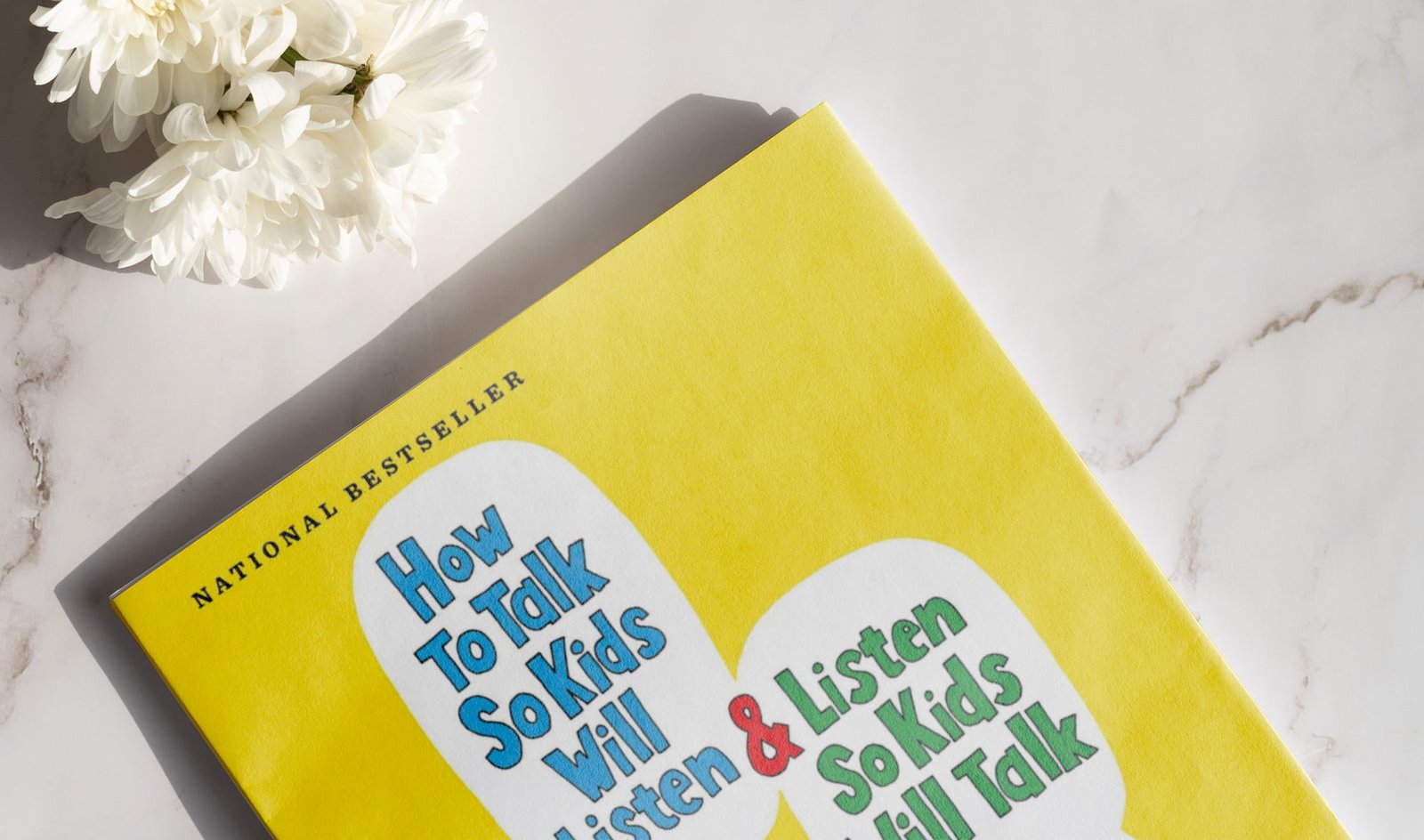The Crazy Words Teens Use for Parents in 2024: A Must-Know Guide for Every Cool Parent!
It’s understandable to feel puzzled by how teens refer to their parents these days. Many parents can relate to the growing generation gap in language use. You’ve come to the right place if you nod in agreement. We’re here to help you decode the secret language kids use every day. Understanding the “teen slang terms for parents” is more than staying current with the newest trends; it’s essential to building a stronger bond with your teenagers. We should familiarize ourselves with the meanings of these mysterious words and work to improve our communication.
What Is Teen Slang and Why Does It Matter?
Teen slang goes beyond an occasional trend; it expresses defiance and creativity. It’s not just about staying up to date with the latest fashions but also about making the foundation of a strong connection. Teenagers constantly push their limits while they build their own identities.
Why Teens Love Slang
- The influence of social media on language and communication. Social media has significantly impacted how people express themselves and share their ideas, resulting in new trends in language, expressions, and casual speech. Exploring this trend and cultural background’s influence on communication styles is intriguing.
- Identity and Independence: Young people are often drawn to creating and using secret codes that give them a sense of belonging and freedom. Sharing stories is vital to building identity and showing independence and rebellion.
- Social Belonging: Slang allows kids to fit in with friends more efficiently. At the same time, dialects will enable them to feel part of something larger that adults may not fully comprehend.
- Cultural Influence: We can explore the impact of different communication styles on teenagers’ lives, such as their social interactions, self-expression, and mental health.
The Impact of Technology
- In this digital age, the connectivity of the online globe has created more convenience for slang terms to spread. This is aided by the popularity of memes and trending topics on platforms such as TikTok.
- Memes and Challenges: Challenges and memes on the internet frequently result in creative slang. A phrase or word can quickly become popular and part of the teens’ language.
- Cultural Exchange: Platforms such as TikTok enable teenagers worldwide to exchange slang, blending global expressions and terminology.

50 Common Slang Terms
This list of 50 common slang terms is just a starting point. There are countless other words and phrases out there, constantly evolving and changing.
- AF: Meaning: As f*** (used to intensify an adjective). Example: “That concert was loud AF.”
- And I oop: Meaning: Expresses surprise or a sudden realization, often in reaction to a mistake or unexpected event. Example: “I was walking and tripped… and I oop!”
- Bait: Meaning: To deceive or trick someone. Example: “Don’t fall for his bait; he’s just trying to get a reaction.”
- Basic: Meaning: Someone who follows mainstream trends, often lacking originality. Example: “Her outfit is so basic; everyone has that same shirt.”
- Bet: Meaning: Used to express agreement or confirmation. Example: “Want to grab pizza later?” “Bet.”
- Big yikes: Meaning: Expresses shock or dismay at something awkward or embarrassing. Example: “He wore socks with sandals? Big yikes.”
- Bop: Meaning: A really good song. Example: “This new song is a total bop!”
- Boujee: Meaning: High-class, luxurious, or aspiring to be wealthy. Example: “She’s so boujee, always posting pictures from fancy restaurants.”
- Bread: Meaning: Money. Example: “I need to get this bread so I can buy those new sneakers.”
- Bruh: Meaning: A casual term of address, often used to express disbelief or surprise. Example: “Bruh, did you see that crazy play?”
- Bussin’: Meaning: Very good, usually used to describe food. Example: “This chicken is bussin’!”
- Cap/No cap: Meaning: To lie / To tell the truth. Example: “He said he has a Lamborghini? Cap.” / “I aced the test, no cap.”
- Catch these hands: Meaning: A threat of violence. Example: “Keep talking, and you’ll catch these hands.”
- Cheugy: Meaning: Outdated, trying too hard to be trendy, or generally unfashionable. Example: “Skinny jeans are so cheugy now.”
- Chill: Meaning: To relax or hang out. Can also describe someone who is laid-back and easygoing. Example: “Let’s just chill at my place tonight.” / “He’s a chill dude.”
- Clout: Meaning: Social media influence or fame. Example: “She’s trying to gain clout by posting controversial videos.”
- Cringe: Meaning: Something awkward or embarrassing. Example: “That dance was so cringe.”
- Deadass: Meaning: Seriously or truthfully. Example: “I’m deadass going to quit my job if they don’t give me a raise.”
- Drip: Meaning: Fashionable style or clothing. Example: “His drip is insane; he always has the freshest outfits.”
- Extra: Meaning: Over the top or dramatic. Example: “She’s so extra, always making a big deal out of everything.”
- Fam: Meaning: Close friends. Example: “What’s up, fam?”
- Finna: Meaning: Going to. Example: “I’m finna go to the store.”
- Fire: Meaning: Awesome or amazing. Example: “That new song is fire!”
- Flex: Meaning: To show off. Example: “He’s always flexing his new car on Instagram.”
- FOMO: Meaning: Fear of missing out. Example: “I have such FOMO when I see everyone else having fun without me.”
- Fr: Meaning: For real. Example: “Are you going to the party, fr?”
- Ghost: Meaning: To ignore someone or suddenly disappear from a social situation without saying goodbye. Example: “He ghosted me after our date.”
- Glow up: Meaning: To become more attractive or successful. Example: “She had a major glow up after high school.”
- Goals: Meaning: Something to aspire to. Example: “Their relationship is goals.”
- Go off: Meaning: To express oneself passionately or angrily. Example: “She went off on him for cheating.”
- Gucci: Meaning: Good or cool. Example: “Everything is gucci.”
- Highkey: Meaning: Openly or obviously. Example: “I highkey have a crush on him.”
- Hits different: Meaning: Unique or special. Example: “This pizza hits different.”
- IYKYK: Meaning: If you know, you know. Example: “It’s an inside joke, IYKYK.”
- JOMO: Meaning: Joy of missing out. Example: “I’m feeling the JOMO tonight; staying in sounds perfect.”
- Kickback: Meaning: A casual gathering. Example: “We’re having a kickback at my place this weekend.”
- Lit: Meaning: Exciting or fun. Example: “That party was lit!”
- Lowkey: Meaning: Secretly or subtly. Example: “I lowkey want to go to the concert, but I don’t want to tell anyone.”
- Mood: Meaning: Relatable feeling or vibe. Example: “That’s such a mood.” (usually accompanied by a relatable meme or image)
- No cap: Meaning: For real, no lie. Example: “I saw a celebrity at the mall, no cap.”
- Periodt: Meaning: Emphasizes a statement (like an exclamation point). Example: “That outfit is amazing, periodt.”
- Salty: Meaning: Bitter or upset. Example: “He’s still salty about losing the game.”
- Savage: Meaning: Ruthless, brutal, or exceptionally good. Example: “That roast was savage!”
- Sheesh: Meaning: Expression of excitement or admiration. Example: “Sheesh, look at that car!”
- Shook: Meaning: Surprised or shocked. Example: “I was shook when I heard the news.”
- Slay: Meaning: To do something exceptionally well. Example: “She slayed that presentation.”
- Snack: Meaning: An attractive person. Example: “He’s a total snack.”
- Spill the tea: Meaning: To gossip or share information. Example: “Spill the tea, what happened at the party?”
- Stan: Meaning: A devoted fan. Example: “I stan Beyoncé.”
- Sus: Meaning: Suspicious or shady. Example: “That guy seems sus.”
5 Popular Slang Terms for “Parents” in 2024: What Are Teens Saying?
Let’s tour the hot playground of upcoming words—terms your kids might use to describe you! Understanding these specifics can help you grasp their intended communication and offer insight into their perspective.
“Rentals”
“Rentals” provides a relaxed approach to expressing love for your parents. It’s an enjoyable method of recognizing the deep connection between parents and their children.
Origins and Usage
The idea of “rentals” mentioned in the text can be associated with borrowing or sharing resources within a community. This can be connected to conversations about collaborative consumption, shared economies, and the advantages of combining resources for sustainable living. Adolescents might use this term informally when talking to friends, sometimes in a sarcastic manner.
“Units”
This term has slowly crept into teen vocabulary to refer to their parents collectively. Think of it as acknowledging the parent team.
Cultural Context
“Units” emphasizes the idea of parents functioning as a cohesive, unified team supporting the family. It conveys efficiency and stability and parallels how parents work together seamlessly. This term gained traction as teens observed parents as a group.
“Ancients”
This is less about age and more about timeless wisdom they sometimes acknowledge in their parents.
Modern Popularity
“Ancients” can be both respectful and teasing. It mixes admiration for their wisdom with a nudge about generational gaps.
“P-units”
“Credit follows hip-hop influences”—it sounds excellent and affectionate.
Etymology and Cool Factor
The “P” in “P-units” reflects musical monikers popularized in hip-hop culture. This adds street cred and affection to a typical parental reference.
“FAM-BAMS”
Part family, part fun—it’s a term with humor.
Embracing informality
“FAM-BAMS” reflects how teens personify the family vernacular with affection and playfulness. Its upbeat, rhythmic sound has familial warmth that softens formal and familiar boundaries.

How Slang Affects Parenting
Slang shapes the parent-teen dynamic. It has both tremendous benefits and potential pitfalls. On the bright side, embracing or responding to slang can build bridges. But if mismanaged, it can create friction. Here’s how:
The Good: Building Connections
- Understanding and Engagement: Their children’s slang usage is the best way parents can demonstrate their interest in their children’s worl. When parents use or acknowledge slang, it’s like a handshake into their teen’s cultural world. Kids often appreciate it when parents try (even if they fail) to understand these nuances.
- Breaking Barriers: Use them as conversation starters and opportunities to learn together. Parents can bridge gaps through humor, show openness to learning, adapt to new norms, and set the stage for meaningful conversations.
The Challenges: Mind the Gap!
- Misunderstandings The lack of understanding could result in hilarious and awkward scenarios.
- Parents should know the basics before speaking to their children. They must be mindful of what they say to prevent confusion.
- Perceived Disrespect Certain phrases can appear too abrupt or sloppy. It is essential to understand why casual language is used and why we use it. Confusion can be avoided by understanding this, and everyone will feel respected.
Eye-Opening Statistics:
- When teenagers chat with peers, more than 90% use casual conversation when discussing their parents.
- Many parents are overwhelmed when encountering these terms.

Navigating the Slang World: A Guide for 2024
Remembering the latest “teen slang terms for parents” might be tough. Still, we can tackle this evolving language together!
Active Approach
- Ask and Learn: Directly ask your teenager about their terms. Taking pride in your curiosity can make teens more likely to engage in the meanings and origins of their slang terms. They see it as a fun topic to discuss rather than an obligation.
- Participate with Them: Join platforms where slang emerges, like TikTok or Instagram. Being on platforms firsthand gives parents the pulse on emerging trends. They can observe language evolution, grasping new words before they become widely used.
Embrace Technology
- Use Slang Dictionaries: Online dictionaries or apps can keep you updated. Urban Dictionary and similar tools provide a simple way to understand the meaning and use of words, especially those popular with teenagers. This will give you better understand why certain words are prevalent in this group.
- Follow the trendsetters: Follow influential people who determine the direction of trending in the language field. Social media stars developed catchy phrases that became popular, showing how language and culture constantly evolve.
Real-Life Examples and Tips
Here are some ways to include slang in everyday interactions successfully:
- Dinner Table Conversations: Make it fun! Challenge each family member to learn and use another term every week. Learning can be enjoyable for the whole family by transforming mistakes into learning opportunities and turning the learning process into a game. This approach makes learning fun, fosters laughter, and encourages collaborative learning among family members.
- Inter-generational Dialogues: Share old-school slang from your youth. You might find some are still playing today! Comparing past slang invites storytelling opportunities, bridging gapped experiences and demonstrating language’s light-speed evolution.

The Future of “Teen Slangy Terms for Parents”
Given the speed at which language evolves, what could the next few years hold for “teen slangy terms for parents”?
Predicting Trends
- More Hybrid Terms: As cultures blend, expect more terms blending languages and dialects. The interconnected world will continue to create slang drawn from mixed-language origins, enriching dialogue with multicultural influences.
- Tech Influences: Watch how evolving digital platforms shape language. Emerging technologies may birth an entirely reimagined vocabulary, with concepts like ‘Metaverse’ already morphing cultural perceptions of interaction.
Keeping Up with Language Evolution
Stay updated on trending words and phrases across social media and online platforms.
Conclusion
Studies indicate that using nuanced language and consistent communication can enhance the interaction between teenagers and their families during adolescence. Unlock the power of humor and patience to supercharge your bond with your teenager! Watch as your
Recommended Products
To better understand and engage with teen slang and culture, here are some recommended products available on Amazon that parents might find useful:
1. The Slang Dictionary: Etymological, Historical, and Anecdotal
This book provides a comprehensive look at the origins and historical context of various slang terms, offering insight into how language has evolved. It’s a fascinating read for those interested in the etymology and stories behind colloquial expressions.
Dive into the world of American slang with this dictionary that covers a wide array of modern expressions. It’s an essential guide for anyone wanting to familiarize themselves with the ever-changing vocabulary of everyday language.
3. American Slang Dictionary: A Fun Guide to Modern American Expressions
This edition offers a playful take on contemporary slang, making it both an entertaining and educational resource. It’s perfect for parents who want to keep pace with the phrases their teens are using.
This engaging word game is ideal for family game nights, helping everyone learn new words and understand language patterns in a fun way. It’s a great tool to encourage interaction and learning among family members.
5. The Official Dictionary of Sarcasm by James Napoli
For those who enjoy a dash of humor, this dictionary delivers sarcastic definitions of words, providing a unique perspective on language that might resonate with those who appreciate wit and satire.
6. Whaddaya Say? by Nina Weinstein
This book is designed to help you understand the informal language in everyday conversations. It is helpful for people who understand how spoken English differs from formal grammar.
This smart speaker can be a helpful assistant in the home, providing instant answers to questions about trending terms and new slang. It can also play music, set reminders, and control smart home devices, making it a versatile addition to any household.
FAQs
Why is it important for parents to understand teen slang?
How can parents keep up with constantly changing slang terms?
What should parents do if they don't understand something their teen says?
How can parents use understanding of slang to improve their relationship with their teens?
Are there any risks associated with teens using slang that parents should be aware of?
Related Posts












































































